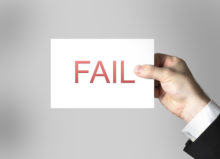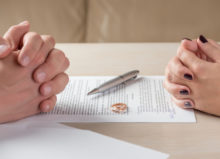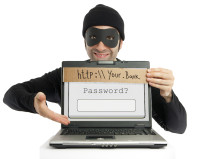Signing Legal Documents From Home in Florida

With the global pandemic of COVID-19 and government-ordered quarantines, day-to-day activities were turned upside down. Many businesses were temporarily closed, “social distancing” became the norm, and people were afraid of contact with others.
Because of this, the ability to carry out regular activities was impacted, including the ability to execute legal documents that require a notary or witnesses or both. In the past, notarial acts had to be performed in the physical presence of the notary—close enough to see, hear, communicate with, and exchange identification materials with that person. During the pandemic, it was difficult to practice all of the recommended safety precautions and still be in the physical presence of a notary, especially for those in a high-risk category. However, the solution seemed to have been established already.
In July 2019, Florida Governor DeSantis signed a law providing for online notarization, which went into effect January 1, 2020. Online notarization enables notaries to perform notarial acts via the use of audio-video communication technology. This seemed to be the answer! What could be easier? Just fire up Zoom, GoToMeeting, or even FaceTime, show the notary your driver’s license, and sign away. Legal documents are signed, and everyone is safe and happy.
But there is a lot more to it than that.
How does online notarization work?
There are several things that must be in place for an online notarization to have the same legal effect as an in-person notarization. First, the notary must be registered as an “online notary public”. This means that the notary has specifically registered with the Department of State to perform online notarizations. Second, you can only “appear before” an online notary if you use audio-visual technology that is in compliance with applicable law. Third, the notary has to verify the identity of the person signing the document. When notarial acts are performed in the physical presence of the notary, this means actually giving the notary your identification. However, with online notarization, identification is presented remotely. To meet the legal requirements, the government-issued identification must be presented in a way that the online notary public is able to identify the individual properly. Finally, the notary must be physically present in Florida when they perform the notarial act, regardless of where the person is signing and where the witnesses are located. By the way, if the person signing the legal document is physically outside of Florida, they must state that they want the notarization to occur in Florida and under Florida law.
What are the formalities that must be followed?
The notary has to use an electronic signature that meets the legal requirements and is accompanied by the appropriate notary seal. The electronic certificate must include a notation that the notarization is an online notarization. The online notary must properly identify the person signing the documents. This means that the notary either personally knows the person signing or has met the specific requirements required by law. The conference session must be properly recorded, and the notary must make sure the session records every required action. Finally, the conference session and all documents must be properly stored, requiring an ongoing storage fee.
What does it mean to have audio-visual technology in compliance with applicable law?
Florida Statutes state that the signal transmission must be reasonably secure from interception, access, or viewing by anyone other than the participants communicating. The technology must provide sufficient audio clarity and video resolution to enable the notary to communicate with anyone appearing remotely. Further, the technology must make it evident if there are any subsequent changes or modifications to the electronic record.
What if the document requires witnesses?
An online notary public may supervise witnesses as long as certain rules are followed. The witness may be in the physical presence of the person signing the legal document or the witness may be in a remote location and use audio-visual communication technology. If the witness is remote, the witness must provide identification that is verified in the same way as the person signing. The witness must then verbally confirm that they are a resident of and physically present in the United States. The witness must be present—whether physically present or present by remote technology—when the document is actually signed.
What about Testamentary Documents?
While the laws governing remote notarization for most documents went into effect January 1, 2020, the laws governing testamentary documents, like a Will, will not go into effect until this July. Further, practitioners are unsure as to how electronic documents will be treated. Historically, Florida courts have been very particular regarding whether a Will was signed properly. And if a Will is not properly signed, it is not valid.
Further, there are restrictions and complications that are created when remotely signing a Will that do not occur when remotely signing another type of legal document. For example, not every person that can create a Will can execute it via online means. There will be added questions to determine capacity and to make sure the person signing is doing so of their own will. Further, there are specific notifications the notary must make. Finally, there are added requirements for storing your document once it has been signed remotely, which potentially means storage fees that can last as long as they hold your Will.
Conclusion
Legal documents are executed for a reason—to protect assets, transfer property, or provide for the future. However, there are formalities that must be followed, or those legal documents are void. Assets remain unprotected, property stays where it is, and whether provisions for the future will be carried out remains uncertain. If you choose to sign in the safety of your home, remember that it takes more than FaceTime and a ballpoint pen to make your legal documents valid.




















